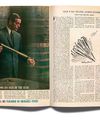
In the early years of our country, public men who felt maligned could end up killing over it. The duel that resulted in Alexander Hamilton’s death was prompted by a letter, in the Albany Register, by someone claiming that Hamilton had called Aaron Burr “a dangerous man, and one who ought not to be trusted with the reins of the government,” and had expressed a “still more despicable opinion” (without further specifics). Instead of redressing an insult to honor through violence, Burr could have tried to sue under the law of defamation— the legal system’s attempt to channel retaliation into a court process. He was certainly familiar with it; as a lawyer, he had used it to go after critics. One probable reason he didn’t was that it was undignified for a gentleman to take a social equal to court.
In the decades that followed, putative defamers became more likely to pay for their words with money than with their lives. Only in the past sixty years, though, did the legal balance shift strongly in their favor: wrecking reputations has, under civil law, become much less risky. The media, for the most part, have been free to publish about public figures without great fear of legal repercussions. That protection derives from New York Times v. Sullivan, a 1964 Supreme Court decision that made it harder to win defamation suits against the media. The Court had argued that the press in a democracy must be able to criticize government officials, and the landmark decision is widely seen as indispensable to a free press.
Bu hikaye The New Yorker dergisinin May 22, 2023 sayısından alınmıştır.
Start your 7-day Magzter GOLD free trial to access thousands of curated premium stories, and 9,000+ magazines and newspapers.
Already a subscriber ? Giriş Yap
Bu hikaye The New Yorker dergisinin May 22, 2023 sayısından alınmıştır.
Start your 7-day Magzter GOLD free trial to access thousands of curated premium stories, and 9,000+ magazines and newspapers.
Already a subscriber? Giriş Yap
Techniques and cIdiosyncrasies

FEAR FACTOR
How the Red Scare reshaped American politics.

PLAYTIME
The old film studios had house styles: M-G-M’s was plush and sentimental, Warner Bros.’ stark and intense.

TIME AND PLACE
“Tatlin: Kyiv” explores a Russian Constructivist’s Ukrainian identity.

MOURNING BECOMES HER
Akram Khan’s “Gigenis: The Generation of the Earth.”

TEXAS ROUNDUP
How Greg Abbott made his state the staging ground for Donald Trump's mass-deportation campaign.

HOUSE CALL
To rent or to buy is the eternal question.

INDESCRIBABLE
The human disaster of the Irish famine.

Louisa Thomas on John Updike's "Hub Fans Bid Kid Adieu"
The original idea was an assignation. On a dreary Wednesday in September, 1960, John Updike, \"falling in love, away from marriage,\" took a taxi to see his paramour.

LIP SERVICE
Zyn and the new nicotine gold rush.